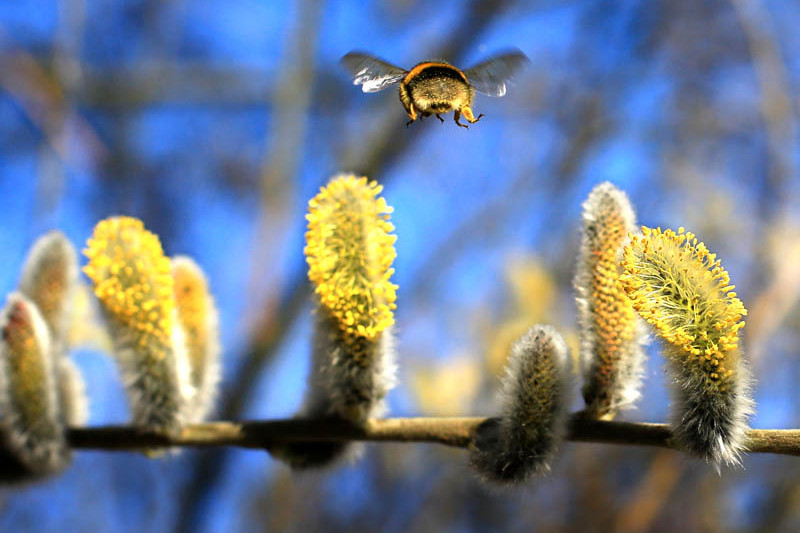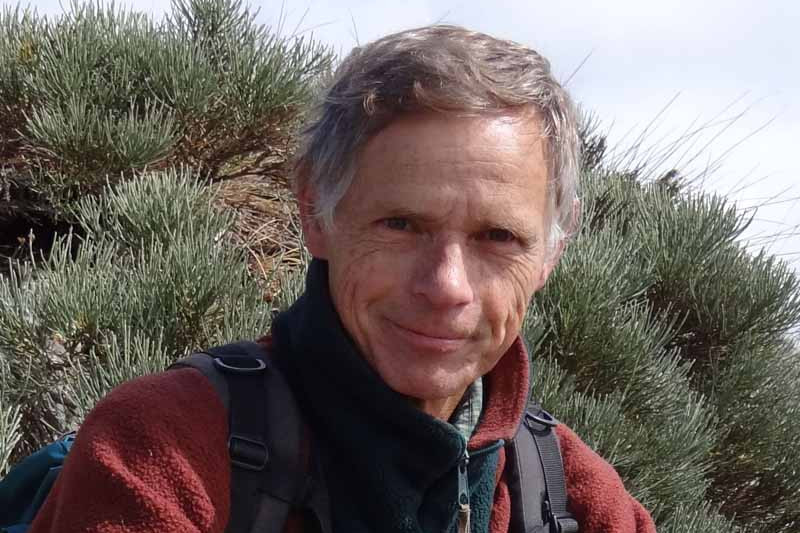Searching for Life: Organism Systems Biology
At the Institute for Evolutionary Biology at the University of Witten/Herdecke, Dr. Bernd Rosslenbroich is conducting research on the abilities and interdependencies of biological systems such as cells, organs and the organism. His research also examines the evolution and developmental history of these systems. In his current research project focused on “organism systems biology” - supported by the Software AG Foundation - he and his colleagues are searching for the specific properties of all living things.
Dr. Rosslenbroich, tell us: what is life?
People have been asking this question for thousands of years. Modern science has contributed considerable factual knowledge about individual life processes, as well as a great deal of detailed information. However, these details do not yet form a complete whole. One thing is certain: life is much more complex than scientists have previously thought. There are many theories about this at the moment; in my opinion, however, many of these concepts do not actually reflect reality.
In what way?
Many approaches assume that life can be reduced to physical and chemical processes. This purely analytical approach sees every living thing almost as a kind of machine. The sum of the parts produces the whole, just like in a functioning car. But when a gear is broken or missing, the car no longer runs, and the part must be replaced. This view still prevails in the majority of approaches to science and medicine. In my opinion, we must move away from this “machine paradigm.” An organism is more than a machine. For example, a living cell obtains the things that it needs to live from the body itself, even new things; thus the cell manages its own components, regulates itself and even “repairs” itself. Naturally, we have to examine chemical and physical interactions, but while doing so we must realise that in a living organism, the parts and the whole are interdependent. In my opinion, this is one of the specific qualities of life.
If we hold a stone in our hand or perhaps hold a cat in our arms, we know intuitively which is living, and which is not. Why should we continue to research this question scientifically?
Scientifically, this difference is actually not so easy to quantify. Yet I consider it a central task of the 21st century to find a scientific answer to the puzzle of life. When we speak of living organisms, we always mean an entire system. It is important to understand these systems, especially when we consider that we are also an organism. The principles behind this will ideally be transferable to diverse other systems and will largely determine how we understand our future. For example, it is essential for the future of humanity that we conceptualize environmental pollution, climate change and the threat of environmental catastrophe as systemic problems. To do this we need to fundamentally understand how a living system works. Whether this is an organism or ecosystem: every place where we intervene, we have to examine how interdependent systems maintain themselves, and what happens when we manipulate them. At the moment, we are lagging fairly behind in this.
Medicine, too, has gotten stuck in its understanding of many chronic diseases. Here we are thinking too mechanically. Whether it's autism, cancer or another illness: there are interdependent systems behind these diseases. One can even ask: is cancer really only a disease of the cells? Or is it a disease of the system? We're engaged in an intensive exchange with American researchers on these questions. A better understanding of the organism would definitely bring us many new advances in medicine.
Agriculture is another example. With all of the pesticides and fertilizer we use, one should ask oneself: are we really producing healthy food, and what are we doing to environmental relationships? The death of bees and the radical collapse of many parts of the insect world that are now taking place should alarm us. This raises the ecological question: why are important animals suddenly unable to survive in such a complex system? All of these are things related to living environments and complex systems. Organism systems biology is an attempt to track these phenomena.
What is your current research project?
At the moment, we are currently pursuing a deeper understanding of the specific properties of living things. Our thesis - for which we've gathered considerable evidence - is that there was a constant increase in autonomy in the course of evolution. Organisms developed more and more autonomy and increased their ability to better regulate themselves. This changed the relationship between the organism and its environment. We are also studying these questions with empirical methods. One project focuses on the development of mammals from reptiles. Here we are particularly interested in the transitions that altered an existing system in a particular group of animals over many millions of years. These transitions are demonstrable with palaeontology; we've already made some discoveries in this regard, and we are also working together with researchers in China and America. Here we are subjecting old discoveries to new analyses, and concentrating especially on the transformations: the change of the limbs, the development of residual heat and respiration, etc. The big question for us is: if all of the components are interdependent, how can it be that changes happen without the complex system breaking down? Our findings show that what we all learned in school - that evolution takes place through mutation and selection - can't really be the case. In our opinion, the school books need to be rewritten in this regard! The prevailing view is that evolution happens basically through many small mutations; contrary to this, however, modern genetics increasingly shows that the genetic building blocks remain basically the same, even during large changes. The genes are conservative, which means that large transitions cannot have been triggered by a change in these genetic building blocks. So what changed? In our view, what changed is above all the use of the genes. The transformations happened therefore through changes in the organism as a whole. Again, it is mainly a matter of the correlations in the system, the interdependencies, and not primarily a change in the gene structure. For us, this suggests that the gene does not control the organism; rather, the organism uses the genome for its own purposes.
This also means, by the way, that human beings are not controlled by their genes. The widely-held view that humans are genetically determined is a fairy tale! Our aim is to draw a more organismic picture. Today it's becoming clearer and clearer that information is not only stored in the DNA; the cell can itself be information. The question is, in the end: what role does this information play in the organism? And how does the organism manage to deal with this so flexibly? The image of the organism as a little machine is not very helpful here.
What is the future of research in organism systems biology? What do you hope for the future?
We would like to examine more and different systems as examples. Every example teaches us more about basic principles, and we can thereby develop the concept further. As a small institute, however, we lack time and money. It would be possible to hold a conference here in Witten and to invite international scientists who are interested in these topics, so that we can work together on furthering our understanding of this concept. We are already well networked, but a joint conference could bring many things together here.
Your project is financially supported by the Software AG Foundation. How does that help your work?
This support is what makes our work possible in the first place. We are extremely grateful that we are able to focus, for an extended period of time, on such a large topic as the question of living systems. This allows us to examine what empirical data tell us about the properties of living systems.
But it is just as valuable for us that the Software AG Foundation takes an interest in questions like those of organisms, and has had an open ear for us. The foundation understands that this is a critical challenge for our future, and they support our approach to these issues. It feels good to be understood. The moral support the Software AG Foundation offers us is just as important as their financial support.
Many thanks for an interesting discussion!
Jan Vestweber, UW/H, conducted the interview.
About Dr. Rosslenbroich
Dr. Bernd Rosslenbroich studied veterinary medicine at the University of Giessen. He completed his doctoral thesis on the treatment of melanoma (skin cancer) at the Faculty of Human Medicine. After that he conducted research at the Ohio State University (USA) before returning to the University of Giessen. In 1989 he joined the University of Witten-Herdecke, where he first researched in the field of complementary medicine before joining the institute of evolutionary biology in 1998. In 2007 he completed his habilitation thesis on the topic of autonomy in evolution and became the head of the institute. His research focuses on the patterns and processes of macroevolution, organismic and system biology, the philosophy of biology and medicine, and general zoology.
University of Witten-Herdecke
Since 1983 the University of Witten/Herdecke (UW/H) has played a pioneering role in the German educational landscape. As a model university with approximately 2,000 students in the fields of health, economy and culture, UW/H is reforming the traditional German conception of the Alma Mater. At UW/H, knowledge transfer always goes hand in hand with values orientation and personality development.


